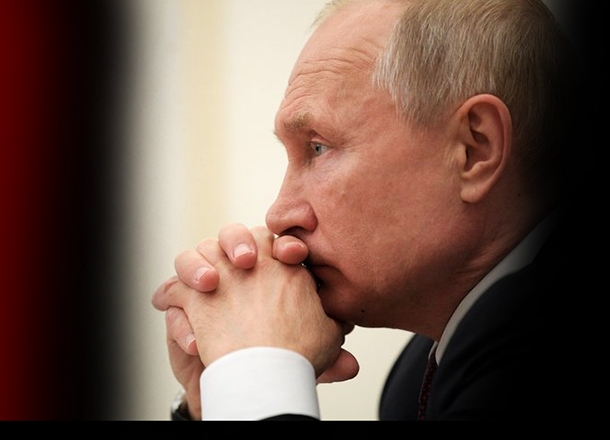For the first time since the Anglo-American unipolar moment emerged in 1991, another world power has dared to defy the West’s self-declared ‘rules based international order.’ The western reaction – to sanction and embargo Russia economically, politically and culturally – has arguably damaged the NATO nations much more than its geopolitical target in Moscow. By pursuing its obsession to punish Russia for its intervention in Ukraine under a seemingly idealistic aegis of international law (laws from which western powers are routinely exempt). Already, the political toll is beginning to set in for ruling regimes of Joe Biden, Boris Johnson, Olaf Sholtz, and Emmanuel Macron, but it doesn’t stop there – the tribulation will also threaten to unseat the entire western liberal world order itself.
The old veil is now lowering, and even leading American intellectuals are finally admitting the obvious…

Dr. Kupchan is a professor of international affairs at Georgetown University and a senior fellow at the Council on Foreign Relations.
During his recent speech in Warsaw, President Biden said that Vladimir Putin “cannot remain in power,” only to clarify a few days later that he was merely expressing outrage, not announcing a new U.S. policy aimed at toppling Russia’s leader. The episode, interpreted by many as a dangerous gaffe, underscored the tension in U.S. foreign policy between idealism and realism.
Mr. Putin’s invasion of Ukraine should provoke moral outrage in all of us, and, at least in principle, it warrants his removal from office. But Mr. Putin could well remain the leader of a major power into the next decade, and Washington will need to deal with him.
This friction between lofty goals and realpolitik is nothing new. The United States has since the founding era been an idealist power operating in a realist world — and has on balance succeeded in bending the arc of history toward justice. But geopolitical exigency at times takes precedence over ideals, with America playing power politics when it needs to.
During the Cold War, Washington promoted stability by tolerating a Soviet sphere of influence and cozying up to unsavory regimes willing to fight Communism. In contrast, after the collapse of the Soviet Union, America operated under conditions of geopolitical slack; great-power rivalry was muted, enabling Washington to put front and center its effort to promote democracy and expand a liberal, rules-based international order.
What, then, is the path forward? The war in Ukraine now confronts the United States with the need to tilt back toward the practice of realpolitik. Washington’s commitment to keeping NATO’s doors open to Ukraine was a laudable and principled stand against an autocratic Russia. Yet America’s idealist cause has run headlong into Russian tanks; Washington’s effort to do right by Ukraine has culminated in Russia’s ruthless effort to put the country back under Moscow’s sway…
Continue this article at the New York Times
READ MORE UKRAINE NEWS AT: 21st Century Wire Ukraine Files
SUPPORT OUR INDEPENDENT MEDIA PLATFORM – BECOME A MEMBER @21WIRE.TV

Get Clive de Carle's Natural Health essentials of the finest quality, including vitamin & mineral supplements here.















